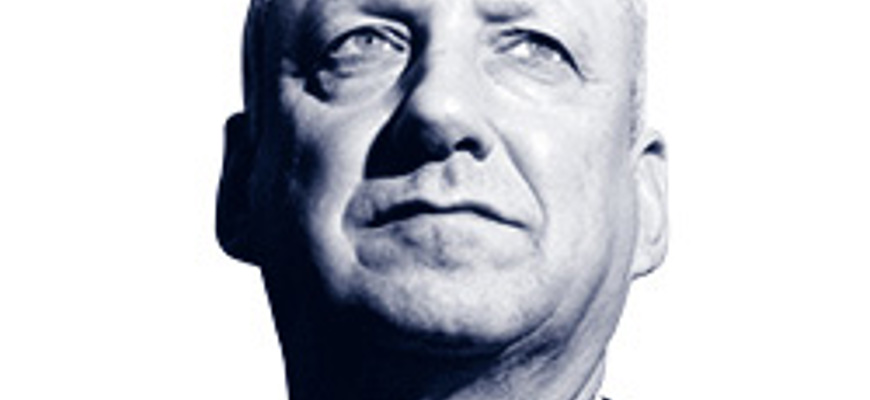Just your luck?

Recently, I watched Ross McEwan, chief executive of RBS, explain that the bank needed to save a further £2 billion and thousands more jobs would have to go. Next day, I met the finance director of a client, who mentioned that his daughter had applied for a postgraduate job with RBS, but had been turned down. He couldn’t tell, he said, whether she had been lucky or unlucky.
The golfer Gary Player is famous for saying, “The harder I work, the luckier I get.” His words strike a chord, because they resonate with our strong desire to have control of our lives. If we work hard, and “do the right things”, surely success will follow? After all, that’s what our parents told us. We are instinctively hostile to the idea that our achievements are down to anything more than our own merit. Comic genius Marty Feldman summed this up perfectly in a cheery message to his mates and former collaborators at the start of their new BBC radio series: “Who needs luck when you’ve got talent? Best of luck. Marty.”
But reflect for a moment and it’s obvious that in every aspect of our lives luck plays a massive part. Listen to Paul Simon:
“Some folks’ lives roll easy as a breeze
Drifting through a summer night,
Heading for a sunny day.
But most folks’ lives, oh they stumble
Lord they fall
Through no fault of their own.
Most folks never catch their stars.”
Hold the hemlock, for I bring good news.
Being lucky is not (only) a matter of luck. No one is immune from life’s delight in creeping up behind us with a cosh when we least expect it, but a large body of research now confirms that lucky people behave consistently in ways that lead directly to their good fortune.
Defining moments
In The Luck Factor, psychologist Richard Wiseman identifies four characteristics: lucky people are skilled at creating and noticing chance opportunities; they make lucky decisions by listening to their intuition; they create self-fulfilling prophesies via positive expectations; and they adopt a resilient attitude that transforms bad luck into good.
By contrast, unlucky people tend to repeat patterns of behaviour which reinforce their poor experience. Typically, they are stuck in fixed routines, so close off the possibility of chance encounters. They do not trust their intuition, and override their hunches, preferring to stick with what seems rational. If they hit adversity, it just reinforces their fears and their pessimistic view of the world. Tension and stress are antidotes to luck. They narrow vision and lower resilience when things go wrong. While none of this is great news for lawyers, for whom stress is a constant companion and whose world view is typically more analytical, pessimistic, suspicious and risk-averse than the rest of humanity, there is a way through.
“I know he’s a good general, but is he lucky?” asked Napoleon. He knew his best generals were not lucky by accident. They had a skill. What are the lessons for law firm generals? How do they guide and inspire their people to behave in ways that will bring them luck and build a great business?
Rally the troops
Wiseman’s findings provide the template. By their own example, leaders must inspire their troops to:
- Get out from behind their desks and into the world; seek out and embrace opportunities for new experiences and meeting people from as many walks of life as possible. Not every encounter will yield gold, but each has the potential for learning, friendship and business opportunity. This means giving permission for speculative activity, not all of which will pay off, but which is infinitely preferable to everyone being so in thrall to chargeable time that one opportunity after another passes over their bent, perspiring heads.
- Trust their intuition. It may not be right every time, but intuition is like a knife. It needs constant honing to stay sharp, not left rusting in the drawer.
- Expect success. Acknowledge the difficulties, and the need for effort and patience, but sustain an invincible belief that they have it in them to make great outcomes possible.
- Be resolute in the face of disappointment. Leaders must say constantly, and mean it, that failure is not a crime. Idleness is. So is timidity. The defining characteristics of pretty much every high achiever you can name are resolve and persistence.
Much of this is easier to say than do. Changing behaviour and core beliefs takes real dedication. But if our job depended on learning a new technical skill, we would roll up our sleeves and set to it. Bringing the same commitment to acquiring the skill of being lucky could be the best investment we ever make.
In this issue
- Ineligibility – an open and shut case?
- Rent deposits – filling in the gaps
- EU at the crossroads
- Brexit: the human rights dimension
- Reading for pleasure
- Opinion: Andrew Lothian
- Book reviews
- Profile
- President's column
- Digital consultation closes
- People on the move
- Clear sky over summary courts
- Defence submissions
- Bookmark the benchmark
- GDPR: Practical steps for Scottish law firms to prepare
- Heads for business
- Spousal visas and the income rule
- Compete or get beat
- Platform party
- The consequences of excluding consequential loss
- Understanding the other side's position
- Family complexities
- Unitary patent: sunrise or sunset for UK holders?
- Third option
- Land reform, step by step
- Member against member?
- Scottish Solicitors' Discipline Tribunal
- Power of attorney update
- The 2012 Act: a bold step forward?
- Back to university
- Accreditation: calling regulatory lawyers
- Law reform roundup
- Street Law shows the way
- Year of big news
- De-risking email
- Paralegal pointers
- Ask Ash
- Top of the list
- Just your luck?
- Executries and pension overpayments






